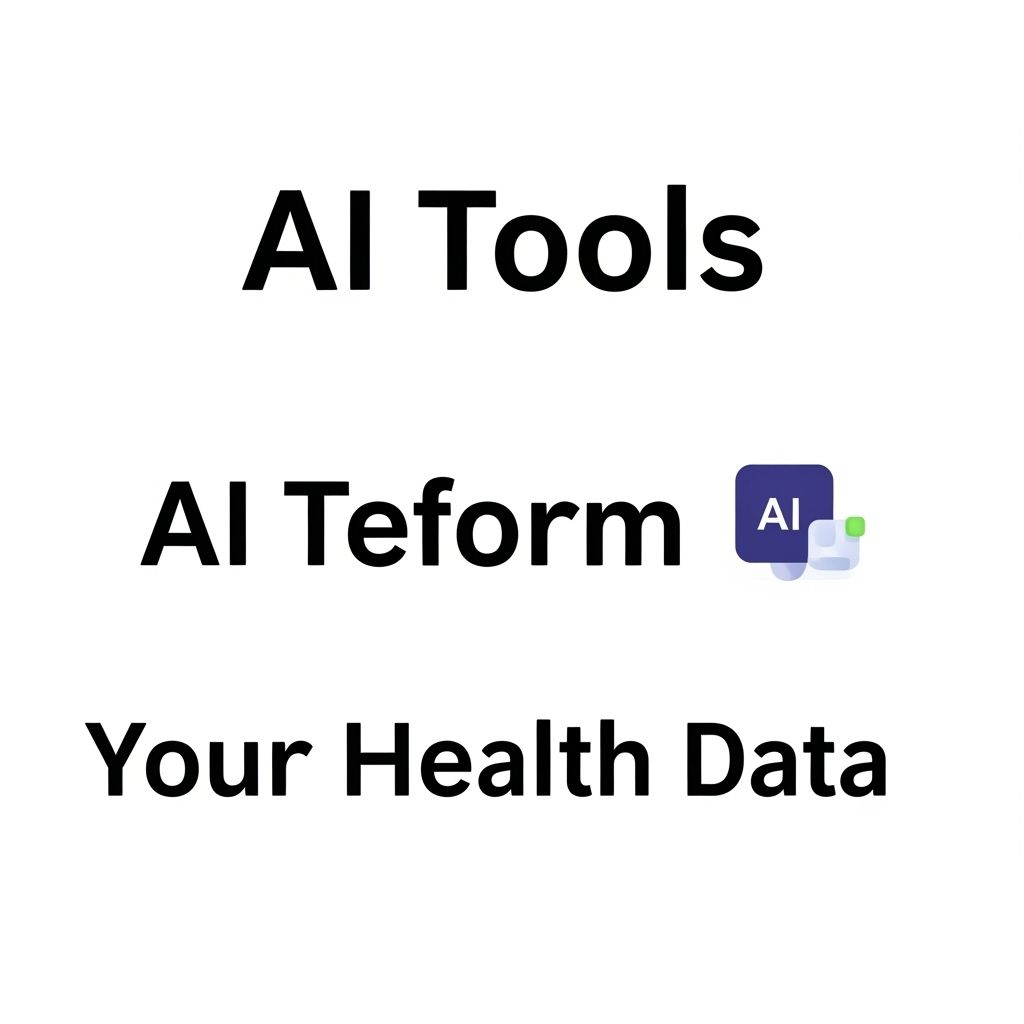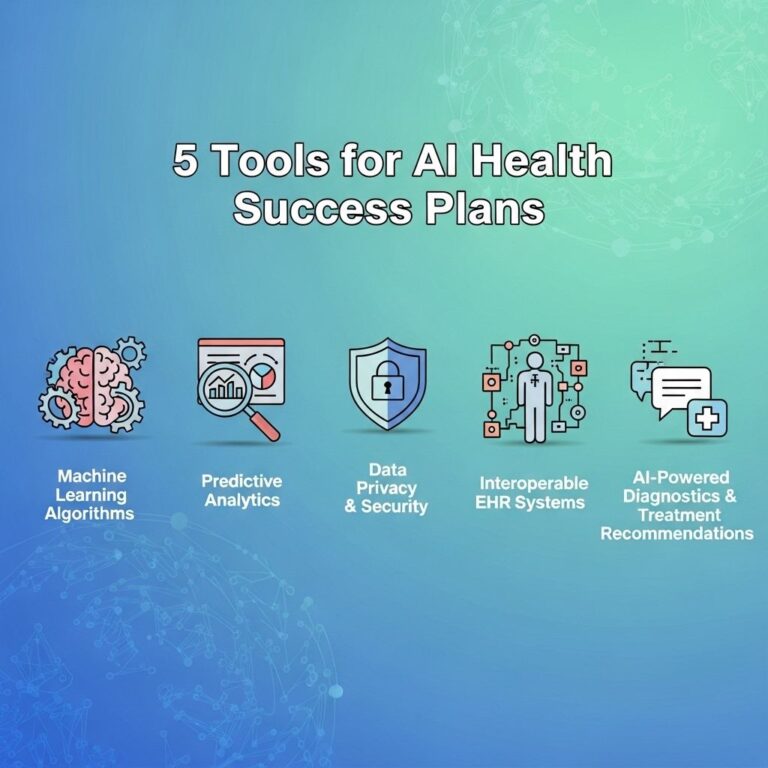In the age of advanced technology, health data is becoming an essential part of personal wellness management. With the advent of AI tools, individuals and healthcare providers can analyze vast arrays of data to gain insights that were previously unfathomable. These tools not only enable better decision-making but also empower users to take charge of their health journeys. In this article, we delve into the various AI tools available to transform health data into actionable insights, promoting overall well-being.
Table of Contents
Understanding Health Data
Health data encompasses a wide range of information related to an individual’s health status, medical history, lifestyle choices, and biometrics. This data can be collected from various sources including:
- Wearable devices (e.g., fitness trackers, smartwatches)
- Mobile health applications
- Electronic Health Records (EHRs)
- Genomic data
- Patient surveys and feedback
By leveraging AI tools, users can analyze this data to uncover patterns, trends, and areas of improvement in their health.
The Role of AI in Health Data Analysis
Data Processing and Interpretation
AI algorithms can process vast amounts of health data quickly and effectively. They use machine learning techniques to recognize patterns and anomalies, helping healthcare providers make informed decisions. The primary roles of AI in health data analysis include:
- Predictive Analytics: AI tools can predict potential health issues based on historical data.
- Personalized Medicine: AI analyzes genomic data to tailor treatments for individuals.
- Real-Time Monitoring: Wearable devices equipped with AI provide real-time health monitoring and alerts.
Enhanced Decision Making
AI tools provide healthcare professionals with insights that enhance their decision-making capabilities. For instance, by analyzing patient data, AI algorithms can suggest optimal treatment plans, flag potential drug interactions, and even identify patients at risk for chronic diseases.
Popular AI Tools for Health Data Transformation
Several AI tools are revolutionizing the way health data is utilized. Below, we explore some of the most impactful ones:
| Tool Name | Primary Function | Key Features |
|---|---|---|
| IBM Watson Health | Data analysis and decision support | Natural language processing, predictive analytics, personalized treatment recommendations |
| Google Health AI | Image analysis and health insights | Deep learning for medical imaging, disease detection, patient monitoring |
| DeepMind Health | AI for patient care | Advanced neural networks, predicting patient deterioration, improving diagnosis |
| Health Catalyst | Data analytics platform | Data warehousing, predictive analytics, outcomes improvement |
IBM Watson Health
IBM Watson Health utilizes AI to help healthcare providers make better decisions by offering comprehensive data analytics. By integrating various health data sources, it provides actionable insights and recommendations.
Google Health AI
Leveraging deep learning technologies, Google Health AI focuses on improving medical imaging and diagnostics. The tool can analyze X-rays, MRIs, and other imaging types to identify diseases with high accuracy.
DeepMind Health
Acquired by Google, DeepMind Health is known for its innovative use of AI to improve patient care. It has developed algorithms that predict patient deterioration and enhance diagnostic accuracy.
Health Catalyst
Health Catalyst is a robust data analytics platform designed to help healthcare organizations transform their data into real-world insights. It enables predictive analytics that can improve patient outcomes and reduce costs.
Benefits of Using AI Tools for Health Data
The integration of AI tools in health data management offers numerous benefits:
- Improved Accuracy: AI reduces human error by providing data-driven insights.
- Time Efficiency: AI can analyze large datasets quickly, significantly reducing the time healthcare providers spend on data interpretation.
- Cost Reduction: By predicting health issues early, AI tools can help in avoiding costly treatments and hospitalizations.
- Enhanced Patient Engagement: Users can take a proactive approach to their health by utilizing AI-driven insights.
Challenges and Considerations
Despite the benefits, there are challenges associated with the integration of AI in health data:
Data Privacy and Security
As health data is sensitive, ensuring its privacy and security is paramount. Organizations must comply with regulations such as HIPAA to protect patient information.
Bias in AI Algorithms
AI systems are only as good as the data they are trained on. If the training data is biased, it can lead to skewed results and unfair treatment recommendations.
Integration with Existing Systems
Healthcare providers often face challenges in integrating AI tools with their existing systems, which can hinder the overall effectiveness of AI-driven insights.
Future Trends in AI and Health Data
The future of AI in health data looks promising. Key trends to watch include:
- Increased Personalization: AI will enable more personalized health recommendations based on individual data.
- More Comprehensive Data Sources: AI tools will integrate diverse data sources for a holistic view of patient health.
- Advancements in Natural Language Processing: This will improve the ability of AI systems to understand and analyze unstructured data like doctor’s notes.
Conclusion
The integration of AI tools in health data analysis holds tremendous potential for improving individual health outcomes and enhancing the efficiency of healthcare systems. As technology continues to evolve, embracing AI in health management will remain a pivotal component in personalizing care, predicting health issues, and transforming raw data into meaningful insights. The future of health data is not just about collection; it is about smart analysis and actionable strategies facilitated by AI.
FAQ
What are AI tools for health data transformation?
AI tools for health data transformation are software applications that utilize artificial intelligence and machine learning algorithms to analyze, interpret, and optimize health-related data, improving patient outcomes and operational efficiency.
How can AI tools improve patient care?
AI tools can enhance patient care by providing personalized treatment recommendations, predicting potential health risks, and enabling more accurate diagnoses through data analysis.
What types of health data can AI tools analyze?
AI tools can analyze various types of health data, including electronic health records (EHRs), medical imaging, genomic data, and wearable device data, among others.
Are AI tools secure for handling sensitive health information?
Yes, reputable AI tools are designed with security protocols to comply with regulations such as HIPAA, ensuring that sensitive health information is protected during processing and storage.
Can I integrate AI tools into existing healthcare systems?
Many AI tools are designed to integrate seamlessly with existing healthcare systems, allowing for smoother implementation and minimal disruption to current workflows.
What are the benefits of using AI in health data management?
Benefits of using AI in health data management include improved data accuracy, enhanced decision-making capabilities, reduced operational costs, and the ability to uncover insights that can lead to better health outcomes.


